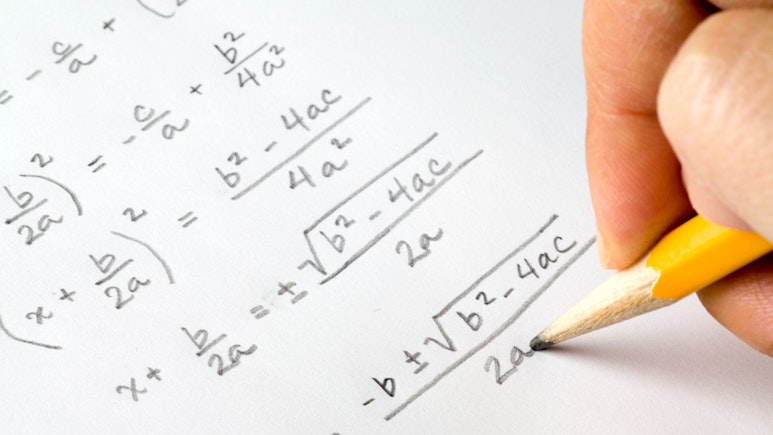The IBEW Aptitude Test (2025 Guide)
Updated November 20, 2023
A career as an electrician is a popular route in the US, as it promises consistent work and opportunities for progression.
It also means the chance to start as an apprentice, which is a great way for many school leavers to gain experience, skills and qualifications, whilst earning money and building a career.
In 2020, approximately 82,000 people passed an apprenticeship scheme in the US, with even more expected this year.
As the median wage for an electrician is around $57,000 per annum, the International Brotherhood of Electrical Workers (IBEW) apprenticeship scheme is worth thinking about.
To be eligible for an IBEW electrician apprenticeship scheme, candidates must take the electrical test, also known as the IBEW Aptitude Test.
The IBEW Aptitude Test
The IBEW Aptitude Test is part of a process that all electricians have to go through.
Before taking the test, you need to apply for the apprenticeship scheme and be accepted. Some criteria need to be met, including being over 18 years old and having a high school diploma or equivalent.
Once your application and qualifications have been reviewed, you will receive an invitation to take the IBEW Aptitude Test.
The tests are held in different venues nationwide. Candidates will usually attend their most local venue.
The test is written and an adjudicator will sit in on the session. It is two and a half hours long, with a short break between the mathematics section and the comprehension part.
The IBEW test consists of:
- Algebra and functions – 46 minutes, 33 questions
- Reading comprehension – 51 minutes, 36 questions
This aptitude test is for the IBEW to assess which applicants have the best skills and knowledge to succeed in the apprenticeship scheme.
Practice IBEW Aptitude Test with JobTestPrep
Scoring in the IBEW Aptitude Test
Results for the test are generally revealed between a fortnight and a month after the test.
The more preparation and practice you do, the better chance you have of attaining a higher score. The higher your score the better, as even reaching the qualifying score doesn’t mean instant entry to the apprenticeship scheme.
Anybody who passes is invited to a face-to-face interview with a member of the IBEW and NECA (National Electrical Contractors Association).
Practice IBEW Aptitude Test with JobTestPrep
The interview will be scored and the combination of this score and the IBEW test results will determine where the application is ranked. The higher the ranking, the closer the candidate is to being accepted onto the apprenticeship scheme.
This does not mean you need to worry about the test. If you prepare well, it will be much more manageable and easier to navigate.
There are several ways to fully prepare for the IBEW Aptitude Test. Begin by knowing more about the contents of the exam.
IBEW Aptitude Test - Algebra and Functions Section
This part of the exam is to test your ability to solve problems, which are generally represented through algebra.
Electricians need to be able to solve an issue or situation calmly, fast and effectively, using math, skill and theory.
This section is therefore important, as it shows the employer if the hopeful apprentice can work out simple math independently.
Most of the 33 questions will be algebra, focussing on quadratic equations, mathematical functions, simplifying and more.
One or two mechanical questions will also be included, such as shape sequences and working out weights and sizes.
These are relevant to the apprenticeship scheme as they will show the applicant’s ability to notice patterns and irregularities. Measuring weights and sizes is part of the role of an electrician.
The majority of candidates will show interest and ability in these areas anyway, as they will be wanting to pursue a career that includes solving problems and doing math every day.

Algebra and Functions Practice Questions
It is advisable to look at some practice papers before the actual exam, to get a good idea of the types of questions. It will also help you to know how long each question is likely to take, and what you need to learn or revise.
Here is an example algebra question:
1. A = B + C
If B equals 5 and C equals 2, what is the value of A?
a) 8
b) 7
c) 9
d) 4
If you need to prepare for a number of different employment tests and want to outsmart the competition, choose a Premium Membership from JobTestPrep.
You will get access to three PrepPacks of your choice, from a database that covers all the major test providers and employers and tailored profession packs.
Here is an example of a mechanical question:
2. Indicate the next number in the sequence:
30, 60, 120, 240, ?
a) 460
b) 380
c) 480
d) 420
IBEW Aptitude Test - Reading Comprehension Section
After the math part of the exam, there will be a break before the reading comprehension.
This section looks at the examinee’s skills in retaining and understanding information. It shows the applicant’s ability to read and follow tasks, something that is vital for the role of an electrician.
Over the 36 questions, the candidate will need to read through the passages and carry out a written task.
They may be asked to:
- Answer questions about the text, retrieving the information and applying it to the answers
- Interpret the text in the form of words used, the tone of the piece or the structure of the sentences
- Make assumptions from the text that reach an answer or conclusion
A good approach is to read each question and answer thoroughly as some answer options may be similar. It also helps to go back to hard questions if they are taking too much time.
Practice IBEW Aptitude Test with JobTestPrep
Reading Comprehension Practice Questions
As with the math section, it is advised to practice for the reading comprehension with test papers.
This will help you to get a good indication of what is expected in the questions and to practice timings.
Below is an example of the type of question that could be asked:
Isabella got to the station at noon, ready for the 12.13 p.m. train to Scotland. She hated to be late, in fact, it caused her anxiety if she thought she was going to be even 10 seconds late. As she sat on the train in First Class, she opened her brown satchel, saw the jam sandwich Marnie had made for her and smiled…
1. At what time did Isabella arrive at the station? Please write the answer in the 24-hour clock format.
2. Based on the information in the passage, would you say Isabella is a relaxed, calm person? Please state your reason for your answer.
How to Prepare for the IBEW Aptitude Test in 2025
Many more sample questions can be found online. It is better to use online sources rather than manual books, as they will be more up to date.
There are a few tried and tested ways to prepare for the IBEW test:
Step 1. Review the Questions First
Before doing any of the practice tests, it is wise to review some questions from both sections. You can then revise and refresh skills to make the practice and eventually the real test seem less overwhelming.
Step 2. Sitting Past Practice Papers
After assessing the different types of questions, do as many practice tests as possible. This will help with working to a timescale as well as practicing the questions.
Step 3. Assess Strengths and Weaknesses
By reviewing questions and taking some practice tests, you will see areas that may need more revision than others. It will also show the elements of math that will be included. You can then focus on these in revision.
Step 4. Familiarize Yourself With the Questions and Their Format
The more practice questions you do, the more you will get used to the structure of questions, making it easier to focus on the correct answer. It would not be good to get a surprise question in the actual exam that throws you and wastes time.
Step 5. Make Time to Prepare for Reading Comprehension
It may be tempting to spend most of the preparation time focusing on the math part of the test. But reading comprehension needs time for preparation too. Practice reading text more thoroughly to ensure nothing is missed, time your practice tests, and do some reading comprehension practice tests for other aptitude exams.
Step 6. Mentally and Physically Prepare
Make sure you prepare for the test by having a good sleep the night before and eating well. Organize any childcare and other commitments well in advance.
Prepare the IBEW Aptitude Test with JobTestPrep
The IBEW tests are scored from one to nine, with nine being the biggest possible score.
For most people, a passing score will be a score of four or above. This can vary depending on the apprenticeship you are applying for and each course can have its own entry requirements.
The IBEW test is split into two sections with a short break between them.
The first section is Algebra and Functions which applicants will have 46 minutes to complete.
The second section is Reading comprehension and applicants will have 51 minutes to answer 36 questions.
Yes, the IBEW is considered to be a relatively difficult assessment in comparison to the tests given to other apprentices. This is especially true of the math section.
No. There are scraps of paper and pencils provided for you to work out calculations, but you are not allowed to use a calculator.
Most people will find that the most valuable thing that they can do ahead of the IBEW assessment is to make use of practice tests.
These will help to familiarise you with the style of questions that you are likely to find as well as help to identify any areas that you perhaps need to practice a little more.



